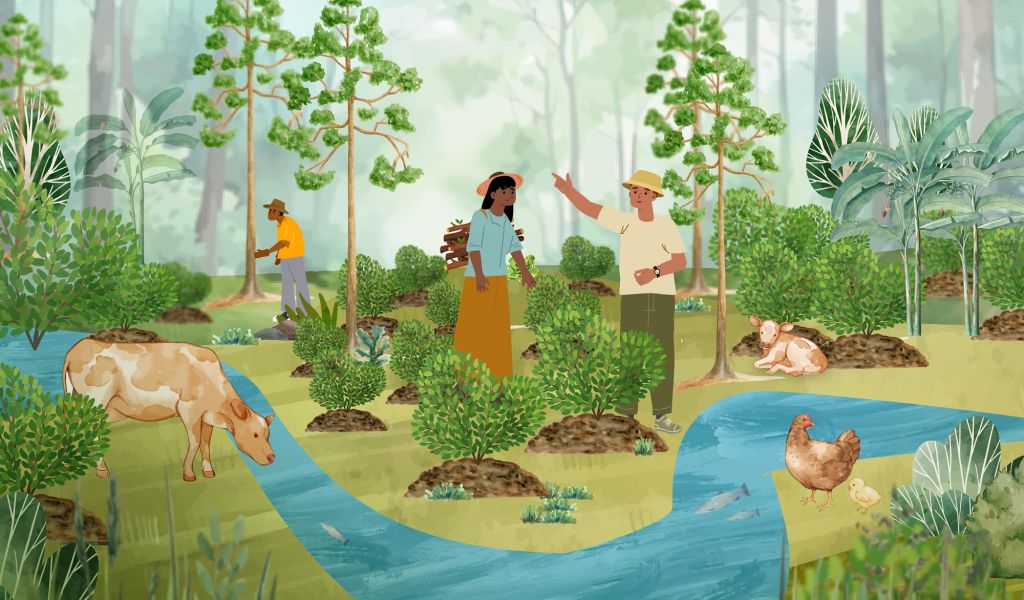Agroforestry 101: Enhancing Livelihoods and Ecosystem Resilience

Enrolment for this course was opened from 27 February to 29 March 2024. The course will run from 15 March 2024 to 31 May 2024.
Agroforestry is becoming increasingly recognized as a critical strategy for increasing climate change resilience and improving local community livelihoods. Agroforestry, which has the potential to maximise environmental, economic and social benefits, has also been widely used as a successful approach to sustainable land use management. Agroforestry practitioners must understand the fundamental principles of agroforestry and how to collaborate with local farmers and other relevant stakeholders in the design of agroforestry systems in order to reap the benefits.
Key features
- Learn for free through experiential and reflective activities based on real-life examples.
- Study at your own pace, dedicating 6 hours to online work and 2 hours to an offline assignment at a time most convenient for you.
- Join a community of learners with opportunities to share ideas and collaborate with agroforestry professionals and enthusiasts.
- Receive a certificate upon successfully passing the assessments.
Course Schedule
| Duration | Type | Link |
|---|---|---|
| 8 hours From 15 March to 31 May 2024 | Online and offline, self-paced | Enrolment for this course was opened from 27 February to 29 March 2024. The course will run from 15 March 2024 to 31 May 2024. |
Who is this course for
This course is designed for:
- Field and project managers in agroforestry and sustainable landscape management.
- Extension workers and community liaisons collaborating with farmers and local communities in agroforestry and sustainable landscape management.
- Individuals responsible for planning in agroforestry and sustainable landscape.
- Researchers and communication staff working on projects related to agroforestry and sustainable landscape management.
Topics the course covers
- Session 1 introduces learners to the fundamental aspects and components of agroforestry.
- Session 2 highlights the environmental, economic and social benefits of agroforestry.
- Session 3 delves into the essential conditions required for the successful development and adoption of agroforestry systems including policies, farmers’ skills, seedling availability and market connections.
- Session 4 emphasizes the significance of involving diverse stakeholders in shaping the agroforestry landscape.
- Session 5 outlines the principles and guidelines for designing agroforestry interventions.
Upon completing the course, you will be able to:
- Identify the characteristics of agroforestry and the functions of its components.
- Recognize the different and interrelated factors that affect the success of agroforestry interventions.
- Promote agroforestry as a sustainable forestry and agriculture practice that provides a range of environmental, economic, and social benefits.
Certificate of completion
This course qualifies for a RECOFTC Certificate of Completion upon satisfactory completion of the requirements.
Agroforestry 101: Enhancing Livelihoods and Ecosystem Resilience was produced with the financial support of Nestlé. RECOFTC's work is made possible with the support of the Swiss Agency for Development and Cooperation (SDC) and the Government of Sweden. The contents of this e-course are the sole responsibility of RECOFTC and do not necessarily reflect the views of the donors.

